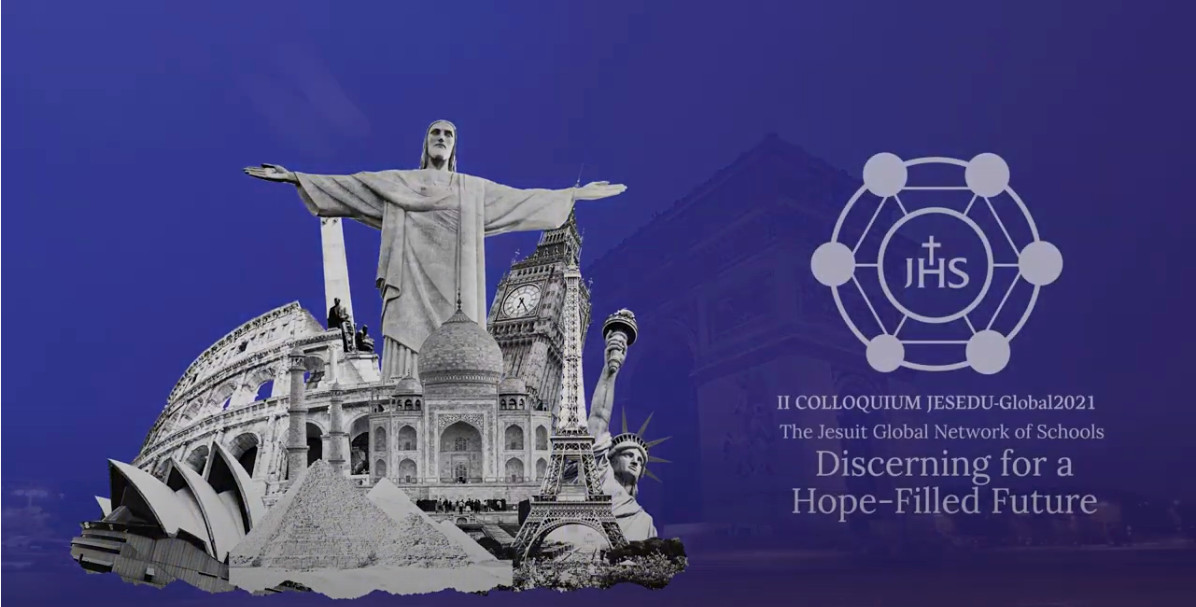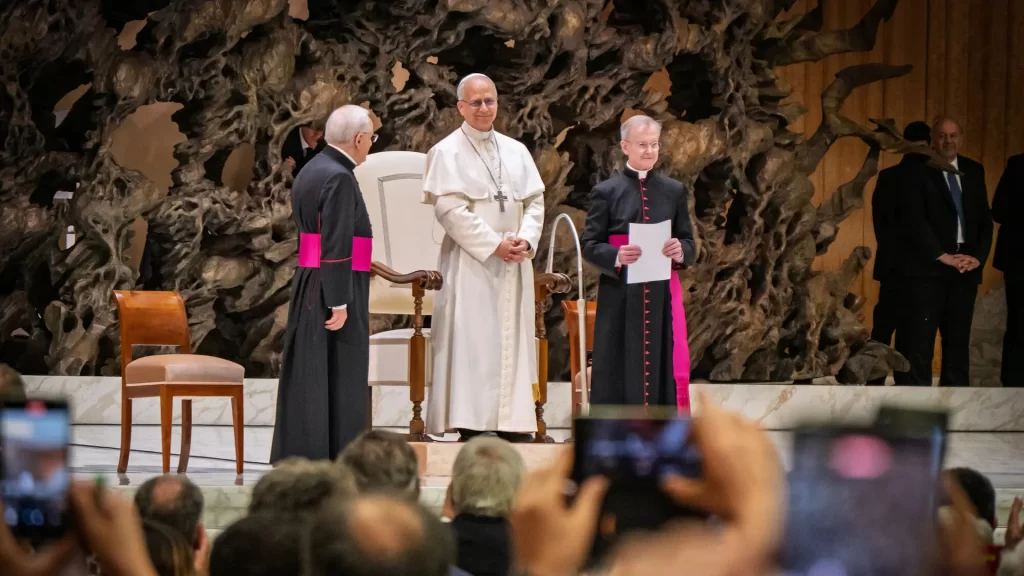 Leaders and educators from our Jesuit global network of schools congregated online for the second Jesuit education (JESEDU) Global Colloquium hosted by the Jesuit Conference of Asia Pacific (JCAP).
Leaders and educators from our Jesuit global network of schools congregated online for the second Jesuit education (JESEDU) Global Colloquium hosted by the Jesuit Conference of Asia Pacific (JCAP).
The first gathering was held in Boston College, USA nine years ago and made history as the first International Colloquium on Jesuit Secondary Education, where over 400 Jesuit and Ignatian educators from 61 countries participated.
This second gathering turned out to be just as historic. Due to the pandemic, the planned on-site colloquium in Yogyakarta, Indonesia in 2020 was cancelled, and replaced with a fully online colloquium.
“It took a virtual global village to organise and run this virtual colloquium,” said Fr Johnny Go SJ, JCAP Education Secretary. From the outset, the organisers were mindful of the differences between an on-site and an online colloquium. “It’s all about designing the experience,” said Fr Go. “The goal was to optimise the online environment so that the entire experience is meaningful and even powerful without exhausting everyone.”
Although the event ran for only five days, from 28 June to 2 July, preparations began many months prior. In fact, for a full month before the colloquium opened, the participants already set to work, watching the pre-recorded keynote addresses and engaging in global conversations through Educate Magis. These conversations, which were posted in the participants’ mother tongue and translated into multiple languages, helped to prepare them for the discernment process embedded in the colloquium.
Despite challenges in time zones, when the gatherings transpired in wildly different hours, for some countries very early in the morning, while in others, far too close to midnight, the attendance at the opening ceremony was remarkably high, drawing in more than 400 people. Fr Jose Alberto Mesa SJ, Worldwide Secretary for Jesuit Education, welcomed the participants, while JCAP President Fr Tony Moreno SJ said the prayer and blessing to prepare them for their exercise in discernment in common. A powerful performance was also given by students and teachers from Asia Pacific who sang, “Amore et Servire”, in different languages.
At the end of the opening ceremony, the participants were inspired and motivated to attend their Discernment Circles, or small groups of 20 members, for spiritual conversations throughout the colloquium. Each Discernment Circle was a diverse mix, providing the participants with an experience of the global nature of the network of Ignatian educators.

The theme of the colloquium was Discerning for a Hope-filled Future–a reference to one of the Universal Apostolic Preferences of the Society of Jesus. The discernment process focused on seeing our educational mission today through four lenses or strands, namely, Educating for Faith, presented Fr James Hanvey SJ (Rome) and Fr Agbonkhianmeghe Orabotor SJ (Africa); Educating for Depth, presented by Margaret Silf (Ireland) and Fr Joe Arun SJ (India); Educating for Reconciliation, presented by Dr Jasmin Nario-Galece (Philippines) and Fr Elias Lopez SJ (Spain); and Educating for Global Citizenship, presented by Dr Fernando Reimers (USA) and the Secretariat Task Force on Global Citizenship.
After almost a week of discernment in common, facilitators and participants gathered again for the closing plenary, where they shared how unique, enriching, and graced their online experience of Ignatian spiritual conversations in their Discernment Circles had been. In an enlightening and inspiring video, students and young alumni from different parts of our Jesuit Global Network of Schools expressed their wishes for tomorrow.
The colloquium ended with a performance of an original song composed by Marvin Ong, an alumnus and currently teacher of a Jesuit school in the Philippines, and sang by students from our global network. Titled, “Against the Wind”, the song is a reference to the familiar image of the pilgrim Iñigo walking against the wind. It was a fitting end to the second JESEDU Global Colloquium and a wonderful contribution to the celebration of the Ignatian Year. [JCAP Education]








